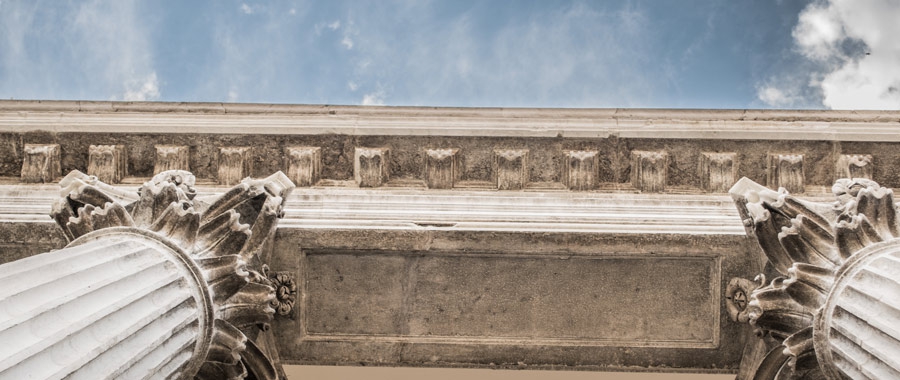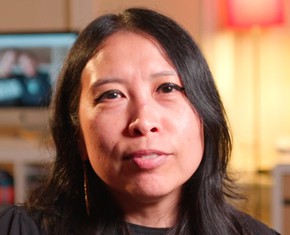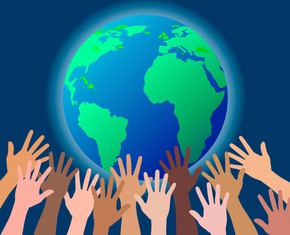The views expressed in our content reflect individual perspectives and do not represent the authoritative views of the Baha'i Faith.
Most of us have a high degree of awareness about the crimes that go on in our community, our nation, and the world. Modern media has learned that crime pays – or at least that covering crimes maximizes ratings.
This maximal coverage of crime has over-sensitized us. Polls show that the fear of crime has grown much faster than crime itself. In the United States, we’ve responded to those fears by building millions of jail cells and prisons to keep the incarcerated isolated, to teach them that “crime doesn’t pay,” that their freedom is forfeit if caught. But does the threat of imprisonment or even execution actually deter crime? We haven’t really answered this age-old question, which prevents us from coming up with anything better.
According to the founders of all religions, the Baha’i Faith included, justice stands on two equally important foundational principles: reward and punishment:
The structure of world stability and order hath been reared upon, and will continue to be sustained by, the twin pillars of reward and punishment …. – Baha’u’llah, Gleanings from the Writings of Baha’u’llah, p. 218.
As young children ourselves, we usually learn these two pillars firsthand from our parents. “Don’t touch the hot stove, or you’ll burn your hand.” With an exceptional report card from school, we may receive a special treat, and so on. So how do we inculcate “fear of burning our hand” and the promise of a special reward, especially in adults who may not have learned the value of either as a child? We’ve tried punishment, but what about reward?
Abdu’l-Baha summarized this dichotomy:
… this material civilization, through the power of punitive and retaliatory laws, restraineth the people from criminal acts; and notwithstanding this, while laws to retaliate against and punish a man are continually proliferating, as ye can see, no laws exist to reward him. In all the cities of Europe and America, vast buildings have been erected to serve as jails for the criminals.
Divine civilization, however, so traineth every member of society that no one, with the exception of a negligible few, will undertake to commit a crime. There is thus a great difference between the prevention of crime through measures that are violent and retaliatory, and so training the people, and enlightening them, and spiritualizing them, that without any fear of punishment or vengeance to come, they will shun all criminal acts. They will, indeed, look upon the very commission of a crime as a great disgrace and in itself the harshest of punishments. They will become enamored of human perfections, and will consecrate their lives to whatever will bring light to the world and will further those qualities which are acceptable at the Holy Threshold of God. – Selections from the Writings of Abdu’l-Baha, pp. 132-133.
So which positive incentives would motivate a grown person to turn away from an evil act entirely, and lead them to forgo the commission of a crime?
The Baha’i teachings suggest that the fear of God’s wrath on one hand, and the hope of an eternal reward on the other, has to take hold in the minds of each human being to prevent the commission of crimes.
That fear, or respect, resembles the respect held between parent and child in the family, the building block of every society. In a healthy family, we act out of love, and we act out of fear of losing that love. When we love God, just like when we love our mate or our children, we want to foster that love and expand it. We know that God gives us spiritual principles, rules and laws for our own benefit, meant to protect us and help us grow.
In the same way, religion has a big part to play. Because it teaches us kindness, love and compassion more than any other force in the world, religion acts as a powerful force to prevent crime. As long as we ignore religion, we will be mired in human faults and foibles, for the divine teachers and messengers have provided us with unerring guidance precisely so we can uplift ourselves.
This idea is not esoteric philosophy, nor is it rocket science. Civilization has only been built, the best of civilization, on pleasing and serving ourselves and others in a cause greater than our individual effort alone. The Golden Rule rules. We act well because it is in our own best interest to do so. In that sense, a universal moral order – “I don’t steal from you; you don’t steal from me” – can become the foundation of society.
Acting well – thoughtfully, justly, and kindly – brings stability, prosperity, and security. Nobody wants to be shunned or disgraced, for after all is said and done, at the end of our lives the only real thing we take to our grave is our reputation.
Our sense of purpose therefore, according to this idea that goodness for its own sake is the best reward, has to be inculcated from an early age. Childhood education and training in virtues and morals prepares each person for living a life of integration with our fellow human beings, at whatever age. That needs to continue into all phases of life, all professions, all endeavors.
Beyond that kind of moral and spiritual education, we can all play a part in preventing crime by:
1. Voicing our objections to unfair and unjust practices, whether local, national or global, offering positive alternatives to a punitive philosophy.
2. Doing more than incarcerating. We can teach prisoners skills, as well as everyone else, so they can learn a trade and earn their livelihood.
3. Effectively counseling those who have served time, offering them a stake to get started such as money and guidance until firmly established, and providing job training, housing and relocation services. This should also be the right of every citizen to receive, even if it’s a low-cost loan.
4. Urging governments and their court systems to make probation more than just a check-in visit waiting for an infraction to happen, and becoming more of an educational process on good citizenship, even enrollment in secondary or college education.
5. Instilling a sense of self-worth and self-esteem in every human being, a sense that they have or will find a contribution to make to the overall welfare of society.
Many more solutions exist, and they will necessitate changes in current thinking on the part of legislators, law enforcement, judges, attorneys, prosecutors, prison wardens, and general public attitudes as well. But if we set our goals, and join like-minded people aligned with an uplifted view of the human spirit, change will come:
When perfect justice reigns in every country of the Eastern and Western World, then will the earth become a place of beauty. The dignity and equality of every servant of God will be acknowledged; the ideal of the solidarity of the human race, the true brotherhood of man, will be realized; and the glorious light of the Sun of Truth will illumine the souls of all men. – Abdu’l-Baha, Paris Talks, p. 154.
















Comments
Sign in or create an account
Continue with Googleor